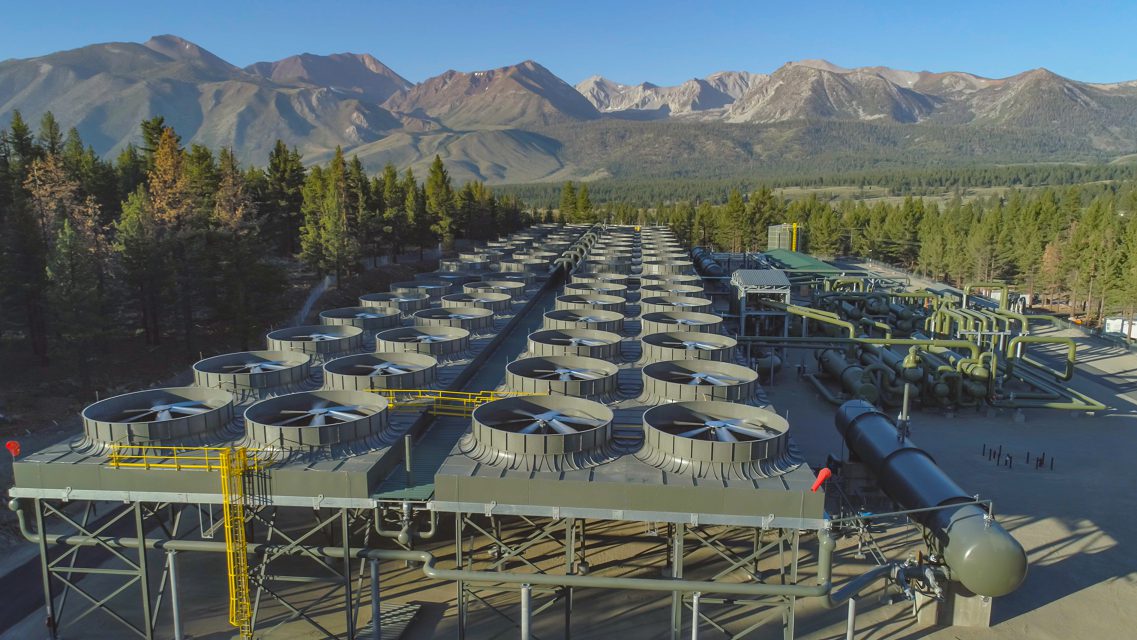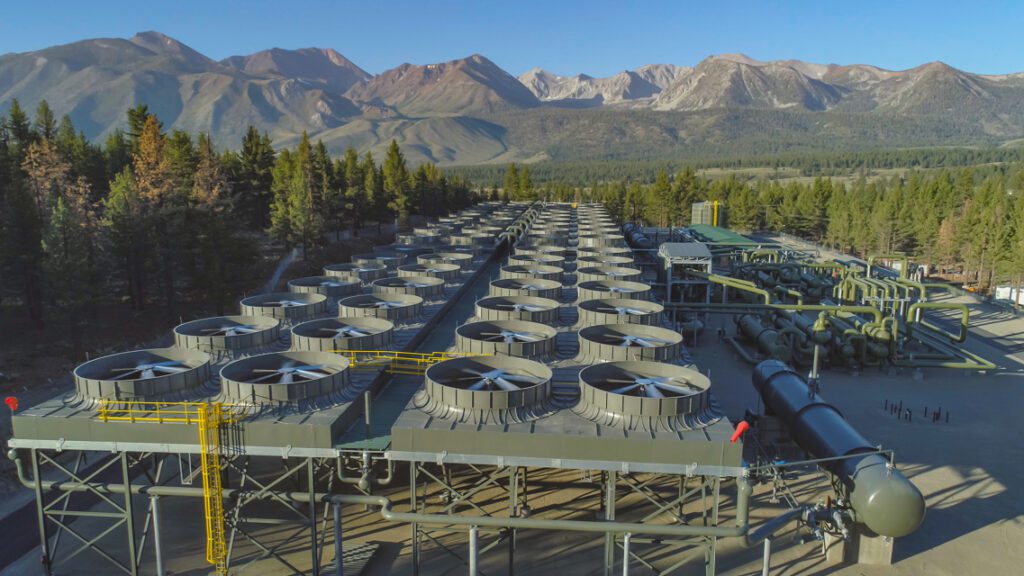
The first geothermal power plant built in more than three decades within the California Independent System Operator (CAISO) balancing authority has come online. Mammoth Pacific Geothermal, an Ormat Co. subsidiary, declared the 30-MW Casa Diablo IV (CD4) commercially operational on July 20.
CD4 is located on public land two miles east of the Town of Mammoth Lakes in Mono County, California. The project is part of the Mammoth complex, which includes three other plants—one completed in 1985 and two added in 1990—each with a generating capacity of approximately 10 MW. The complex taps into the Long Valley Caldera’s hydrothermal system at a point where the hot water is only a few hundred feet below ground.

CD4 comprises two Ormat Energy Converter (OEC) binary generating units, each 21.2 MW, and vaporizers, turbines, generators, air-cooled condensers, preheaters, pumps and piping, and related ancillary equipment. OEC binary generating units are based on an Organic Rankine Cycle, and work by vaporizing a secondary working fluid (organic, with a low boiling point) that is heated by the geothermal fluid extracted from an underground reservoir. The organic vapors drive the turbine and are then condensed in a condenser, cooled by air or water. The CD4 unit is air-cooled. The CD4 plant has a gross capacity of 42.4 MW, but estimated auxiliary and parasitic loads (power used within the project for circulation pumps, fans, well pumps, and losses in transformers and cables) is about 9.4 MW.
While construction began in August 2021, the project faced extreme conditions during fire season, snowstorms, and supply chain issues. The closed-loop binary project will now provide Central Coast Community Energy and Silicon Valley Clean Energy with 14 MW of baseload energy under a 10-year power purchase agreement (PPA). The project is the first in Ormat’s portfolio to sell output to Community Choice Aggregators, the company noted.
“These three strategic PPAs support Ormat’s long-term plans to grow our geothermal business in California, while also demonstrating the value of Ormat’s unique binary technology in providing zero-emission, renewable energy at affordable prices,” said Ormat CEO Doron Blachar.
Geothermal has remained a crucial power resource for CAISO, the organized wholesale market that accounts for about 80% of California’s demand. California has set out to procure 60% of its power from renewables by 2030 and rely on 100% carbon-free electricity by 2045. However, since brownout events in August 2020, the state has scrambled to adjust its power generating portfolio to address reliability impacts.
A May 2022 analysis by GridLab—a coalition that provides technical assistance on grid issues—suggests that California can operate reliably at an 85% clean system, with high shares of wind, solar, and storage. However, it suggests firm resource diversity through in-state offshore wind and geothermal would strengthen the state’s resource mix and reduce new solar build requirements by half.
In 2021, overall output from geothermal generation provided only 4% of system energy in CAISO. One reason is that the development of new geothermal has lagged, Ormat said. “That is now changing due to new procurement, resource planning selection, long-term reliability needs, and the lack of cost-competitive alternative clean energy resources that can provide firm carbon-free capacity.”
Ormat has argued that geothermal now yields the highest economic value of any renewable resource in California, and it could provide evolving value over the coming decades. “Geothermal energy obtains the average energy value across the entire year, which is already significantly higher than solar’s energy value,” the company said in a recent white paper.
“Additionally, because it operates continuously throughout the year, geothermal obtains a high capacity rating, no matter the level of renewable penetration. Moreover, it has more reliable performance across the year than solar or wind hybrids with integrated storage since the latter utilize variable generation to charge the storage while geothermal has continuous operations. Due to geothermal’s performance during the California blackouts of August 2020 (CPUC 2021), geothermal is now recognized and valued for its reliability during extreme weather and electrical events,” it said.
—Sonal Patel is a POWER senior associate editor (@sonalcpatel, @POWERmagazine).
The post CAISO’s First Geothermal Plant in 30 Years Comes Online appeared first on POWER Magazine.